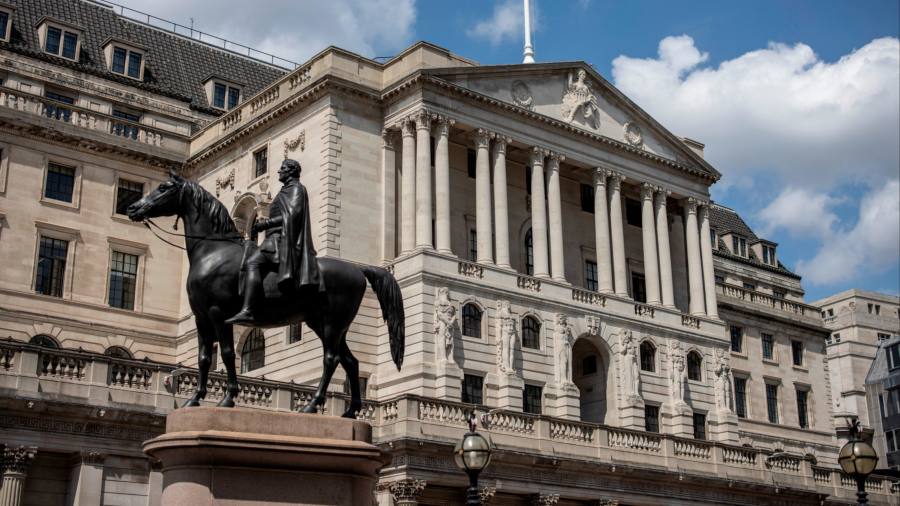Receive free UK interest rates updates
We’ll send you a myFT Daily Digest email rounding up the latest UK interest rates news every morning.
The Bank of England has stepped up its fight against persistent inflation with a surprise half-point rise in interest rates to 5 per cent, the highest level since 2008.
Voting seven to two in favour of the larger-than-expected increase, the central bank’s Monetary Policy Committee said it was responding to “material news” in recent economic data that showed worse inflationary pressures in the UK economy.
The BoE hopes its decisive move demonstrates determination to get a grip on rapidly rising prices. In a letter to the chancellor explaining the decision, governor Andrew Bailey said: “Bringing inflation down is our absolute priority.”
With its 13th consecutive rate rise, the MPC defied market and most economists’ expectations of a quarter-point increase.
But it will reinforce financial market movements over the past month that have prompted lenders to withdraw fixed-rate mortgage rate deals and increase the costs of home loans substantially in what has become known as a mortgage “time bomb”.
Justifying the move, the MPC said: “There has been significant upside news in recent data that indicates more persistence in the inflation process.”
The boost to sterling from the BoE’s larger-than-expected interest rate rise has faded quickly, with the currency turning lower. Having briefly risen to $1.2838, up 0.4 per cent against the dollar, it is now trading 0.1 per cent lower at 1.2763.
UK government bond yields have also fallen despite the extra-large rate increase, with the two-year slightly lower at 5.03 per cent.
Heading into the decision, swap markets had indicated that a slim majority of investors expected a quarter-point rate rise, although the likelihood of a half-point rise had increased this week following the latest evidence of stubbornly high inflation.
Read the full article here




